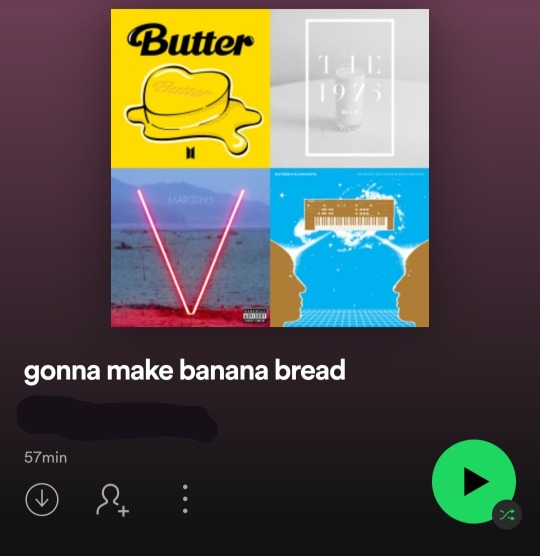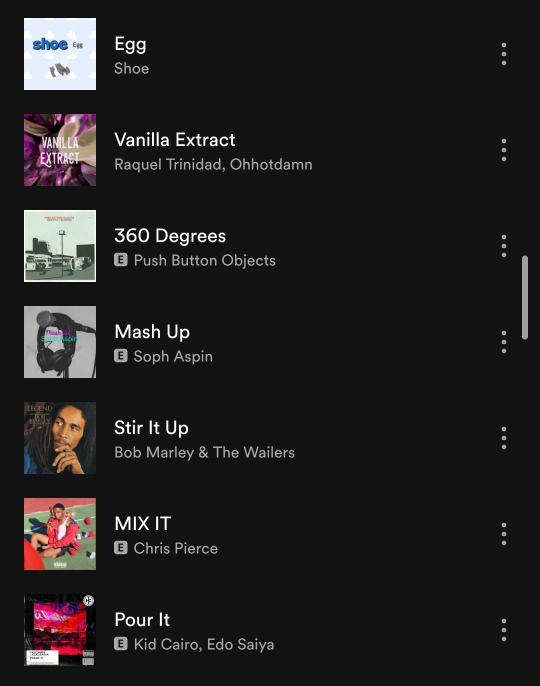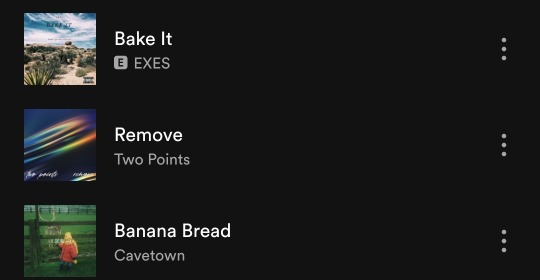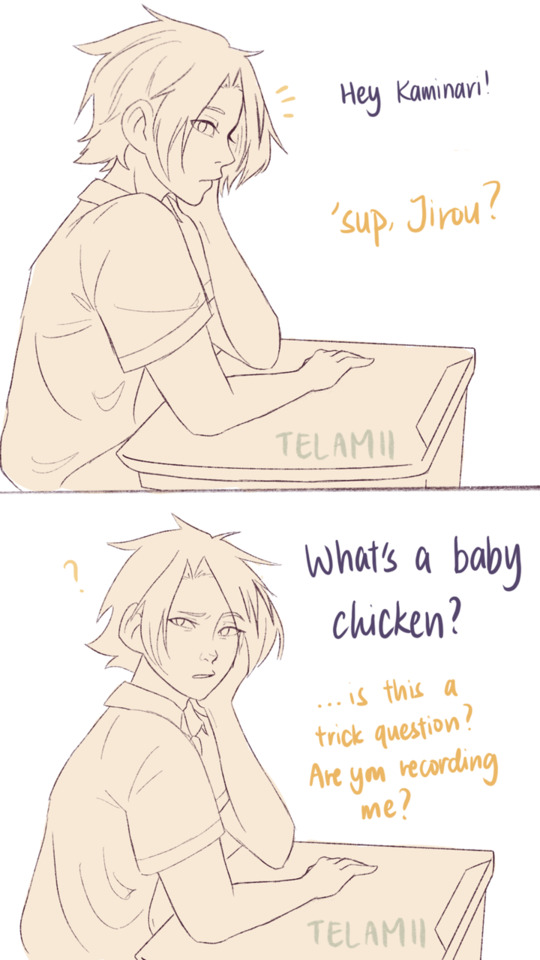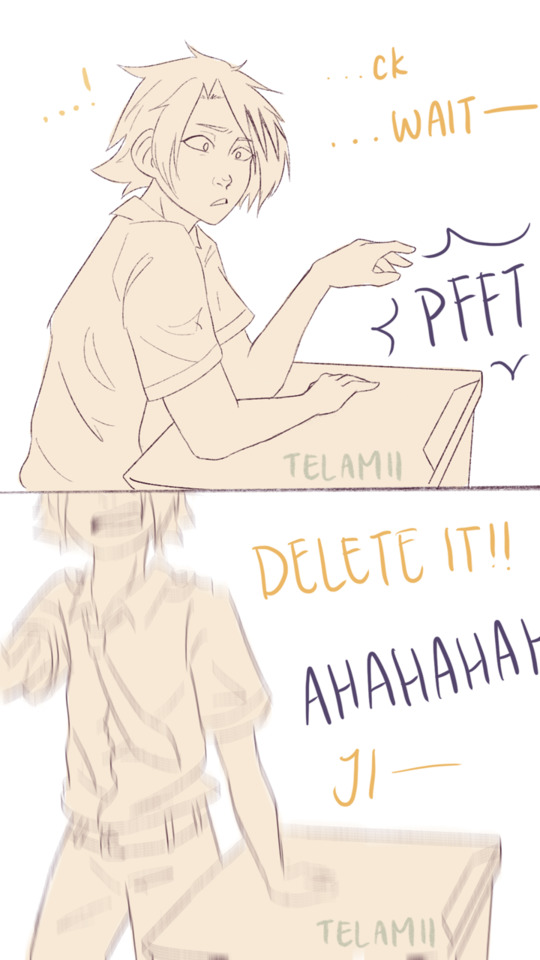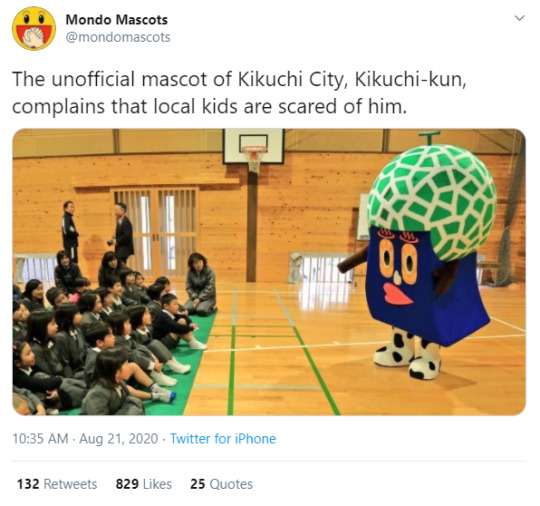Text
Just saw a post saying “please never send me Good Omens fanfic it’s literally illegal for me to read” and I was like “woah wtf happened in the good omens fandom??” And then I realised it was a post by Neil fucking Gaiman
48K notes
·
View notes
Text
me when i do anything that i normally can’t do: well well well look who was faking their lifelong disability all along
2K notes
·
View notes
Text
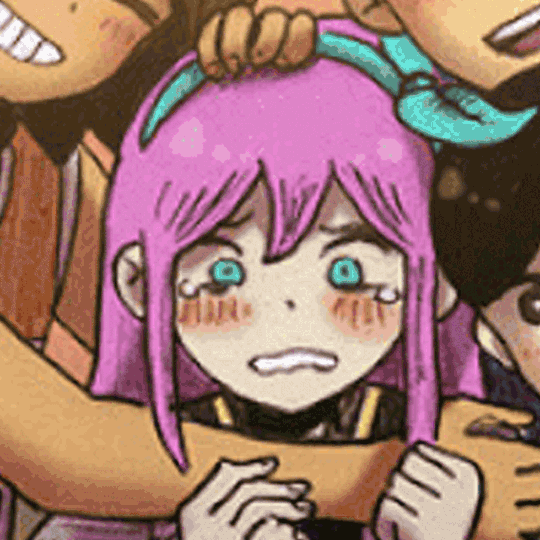


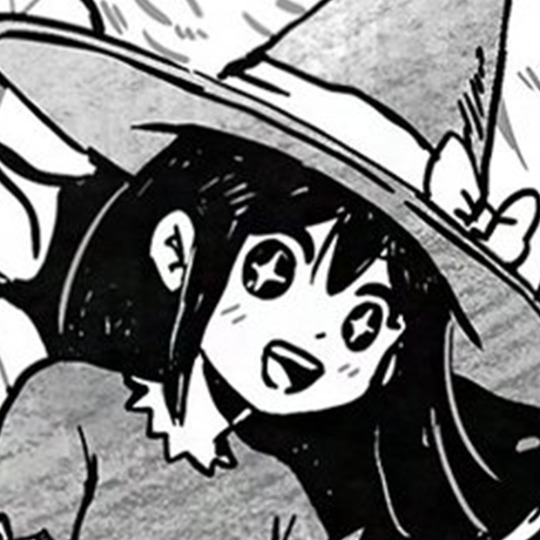

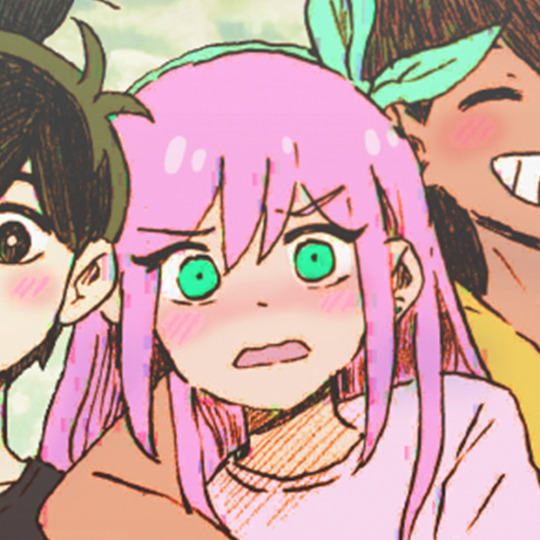

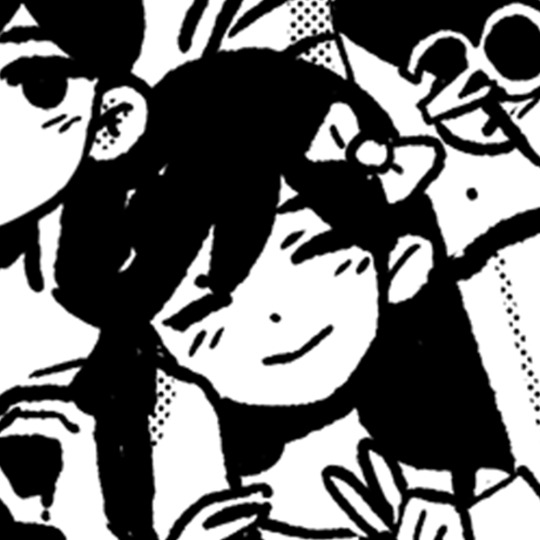

🗯️ / like or reblog if u save @sai5ki on twitter
#aubrey#aubrey omori#aubrey messy icons#aubrey icons#aubrey omori icons#omori#omori icons#omori messy icons#aubrey layouts#aubrey messy layouts#aubrey packs#aubrey messy packs#aubrey headers#aubrey messy headers#omori layouts#omori messy layouts#omori packs#omori messy packs#omori headers#omori messy headers#anime icons#anime messy icons#anime layouts#anime messy layouts#anime packs#anime messy packs#anime headers#anime messy headers
1K notes
·
View notes
Text
Huge post - quotes I underlined whilst reading A Little Life by Hanya Yanigahara.
They were wonderful, truly wonderful, and he knew it. And what's more, he did deserve them.
"You're a coward," he said to his reflection in the bathroom mirror.
Tonight, I am a camera,
as if someone had patted away the top layer of clarity and left behind something kinder than the eye alone would see.
Not just appendages to his life but as distinct characters inhabiting their own stories;
whenever he had smiled or laughed, he had reflexively covered his mouth with his hand,
the drip of all their lives.
It was a love letter, it was a documentation, it was a saga, it was his.
Spinster librarians and cardigan fags.
"Smile, but don't tell people your name."
Recede into the evening, a melting into history as quiet as a briquette of ice sliding into a warm bath.
Motivated by a fear that if he didn't move forward, he would somehow slip back to his past, the life he had left and about which he would tell none of them.
"Ambition is my only religion."
"You're not stupid," he said, quietly. "I'm just not explaining it well enough."
They would never have demanded he be like them; they hardly wanted to be themselves.
This is enough. This is more than I hoped.
He had the ability to imagine anything.
The phrase beating its rhythm like a heartbeat, thudding through his body like a second pulse: Oh god. Oh god. Oh god.
Accepting what was told you, in turning and walking away when the door was shut in your face instead of trying to force it open again.
"Fuck!" he shouted. "Fuck, fuck, fuck!"
For hurting himself, for not letting himself be helped, for frightening and unnerving him, for making him feel so useless: for everything.
Only his rage was keeping him warm.
And he was sick with guilt.
"Fuck 'em," he said, "I'll stay here with you."
There was only misery, or fear, and the absence of misery or fear, and the latter state was all he had needed or wanted.
"Post-sexual, post-racial, post-identity, post-past."
"The post-man. Jude the Postman."
You're just looking for a reason to tell him, and then what will he think of you? Be smart. Say nothing. Have some self control.
Great ugly unmissable pleas for attention.
He could feel the smoke filling his eyes, pressing upon his eyelids like a shaggy warm beast.
It was as if the daily effort to appear normal was so great that it left energy for little else.
His days were now hours: hours without pain and hours with it,
it's going to fester inside you, and you're always going to think you're to blame.
Why had she never told him exactly how poor, how ugly, what a scrap of bloodied, muddied cloth, his life really was?
It lived on him like a thin scum of mold.
"Don't let this silence become a habit."
"Has anyone ever told you that sometimes you just need to accept things, Jude?"
Fear and hatred, fear and hatred: often, it seemed that those were the only two qualities he possessed. Fear of everyone else; hatred of himself.
He could feel the creature inside of him sit up, aware of danger but unable to escape it.
A blank, faceless prairie under whose yellow surface earthworms and beetles wriggled through the black soil, and chips of bone calcified slowly into stone.
He stopped to take a breath, aware, suddenly, that he had been talking and talking, and that the others were silent, watching him. He could feel himself flushing, could feel the old hatred fill him like dirtied water once more. "I'm sorry," he apologised. "I'm sorry, I didn't mean to ramble on."
He experienced the singular pleasure of watching people he loved fall in love with other people he loved.
What is going to happen to me? he asked the sea. What is happening to me?
And yet he was always prepared: It will end this month, he would tell himself. And then, at the end of that month: Next month. He won't talk to me next month.
"There's something incredibly arrogant about your stubbornness, Jude," he continued. "Your utter refusal to listen to anything that concerns your health or well-being is either a pathological case of self-destructiveness or it's a huge fuck-you to the rest of us."
He will be reminded of how trapped he is, trapped in a body he hates, with a past he hates, and how he will never be able to change either.
My life, he will think, my life.
-part chant, part curse, part reassurance-
My life.
I felt something crumble inside me, like a tower of damp sand built too high:
The impossibility of finding someone to do such a thing for another person, so unthinkingly, so gracefully!
Because finally, the moment you have been expecting, been dreading,
Ah, you tell yourself, its arrived. Here it is.
And after that, you have nothing to fear again.
And while I didn't drive him off the road, I instead drove him somewhere bleak and cold and colorless, and left him standing there, where, back where I had collected him, the landscape shimmered with color, the sky fizzed with fireworks, and he stood openmouthed in wonder.
He wished, suddenly and sharply, that he was alone.
He missed Willem intensely -
life would keep propelling him steadily forward, because for everyone who might fail him in some way, there was at least one person who never would.
"And Jude-" But he didn't, or couldn't, say anything else.
"I know," he said. "I know, Willem, I feel the same way."
"I love you," said Willem, and then he was gone before he had to respond. He never knew what to say when Willem said that to him, and yet he always longed for him to say it.
Who, really, would ever want this?
"Don't fuck this up, St. Francis," he said. "This is your chance, do you hear me?"
"I'm honored to be your weird friend."
Willem talks and talks, and he laughs as he brushes his teeth and washes his face.
He wants to hear Willem say such things over and over,
the only trick of friendship, I think, is to find people who are better than you are - not smarter, not cooler, but kinder, and more generous, and more forgiving -
"Don't make me go alone."
"You won't be alone. You'll be with JB and Malcolm."
"You know what I mean."
Why wasn't friendship as good as a relationship? Why wasn't it even better?
It was feeling honored by the privilege of getting to be present for another person's most dismal moments, and knowing that you could be dismal around him in return.
"For someone who claims to be such a great friend, you sure as fuck haven't been around to prove it,"
He felt he had been hustled into a game of complicity, one he had never intended to play.
I don't think happiness is for me, Jude had said at last, as if Willem had been offering him a dish he didn't want to eat. But it's for you, Willem.
He opens his eyes and experiences that strange, lovely sensation that his life is cloudless.
"You'll always be ugly, but that doesn't mean you can't be neat,"
It was impossible to explain to the healthy the logic of the sick.
To think of him as someone reliable and hardy, someone they can come to with their problems, instead of him always having to turn to them.
He wanted to devastate them; he wanted them to feel as inhuman as he did.
Forgive me, Jude. Forgive me.
Forgive me.
Forgive me.
Forgive me.
His silence had begun as something protective, but over the years it has transformed into something near oppressive,
"You don't need to worry about me, Willem. I'll always be fine. I'll always be able to take care of myself."
"I'm lonely," he says aloud, and the silence of the apartment absorbs the words like blood soaking into cotton.
He is so lonely that he sometimes feels it physically, a sodden clump of dirty laundry pressing against his chest. He cannot unlearn the feeling.
Not having sex: it was one of the best things about being an adult.
Could he destroy everything he's built and protected so diligently for intimacy? How much humiliation is he ready to endure?
x = x, he thinks. x = x, x = x.
I felt bad for us, then, for being so stupid.
The sort of rage that comes with the realisation of one's gross inadequacy,
Believe me, because you believed me before; you are beautiful and perfect, and I never meant what I said.
He always answered the exact same way: fine, fine, fine; no, no, no.
To collapse against him the way he never had and start crying, to confess everything to Willem and ask him to make him feel better, to tell him that he still loved him in spite of who he was.
And the two of them stood there, wrapped around each other, holding each other for a very long time.
They would see how much time he had stolen from them; they would understand what a thief he had been, how he had suckled away all their energy and attention, how he had exsangstuinated them.
The way everyone looked the same when they cried, their noses hoggy, rarely used muscles pulling their mouths in unnatural directions, into unnatural shapes.
In the same, undefinable way that he had decided to kill himself in the first place - he had decided he would work on getting better.
This is crazy, he told himself. This is not a good idea. Both were true. It would be so much easier if he didn't have these feelings at all. And so what if he did?
"There are worse life sentences."
He was home, and home was Jude. He loved him; he was meant to be with him; he would never hurt him - he trusted himself with that much. And so what was there to fear?
This, he realises, is what he wanted from a relationship all along. This is what he meant when he hoped he might someday be touched.
A strange queasy giddiness, that he is the one seeing it, that it being bestowed upon him.
-a warped curiosity? madness? pity? idiocy?-
It is as if they are bringing all the air from the room, from the apartment, from the world, into their lungs and releasing it, just the two of them, all by themselves.
"I mean, I'm actually really pissed. But. I. Am. Happy."
And this too he loved: he loved knowing that in those moments, he was making Jude happy, loved knowing that Jude wanted affection and that he was the person who was allowed to provide it.
"Oh well," he'd said, even though he could hardly speak because the pain was so intense.
Someone with whom you could discuss the mechanics of a shared existence.
As they enter the fire, they aren't burned but melted into one being, their legs and chests and arms and heads fusing into one.
Good, he'd praise himself after they'd hung up, after every time he'd kept his mouth closed against his own fears. Good job.
He was worried because to be alive was to worry.
They all - Malcolm with his houses, Willem with his girlfriends, JB with his paints, he with his razors - sought comfort, something that was theirs alone, something to hold off the terrifying largeness, the impossibility, of the world, of the relentlessness of it's minutes, it's hours, it's days.
The fact that I know this is sick means I'm not.
"No. I do this to myself so I won't hurt him. I'm doing this to spare him."
His face and body and voice and scent and touch,
the way his smile moves so slowly across his face that it reminde you of moonrise,
there will be the shirt with its dangling buttons, but the buttons will be sewn back in place.
This other person is always making a home for you,
laughing so much that you began to equate happiness with pain,
being extravagantly silly the way you never were as children.
So: happy. Yes, he was happy.
He feels massive beside Jude, something puffed and expansive.
You're mad because you can't figure out how to make him better and so you're taking it out on me. Oh god, he thinks. Oh god. Why am I doing this?
This is my little world, and I don't know what to do in it. He feels trapped, and yet how can he feel trapped when he can't even negotiate the small place he occupies?
Gobbled up this affection as a rat would a piece of molding bread.
"I am fifteen," he announced to the quiet room, and hearing himself say those words - the hopes, the fantasies, the impossibilities that only he knew lay behind them - he was sick.
The person he loved was sick, and would always be sick, and his responsibility was not to make him better but make him less sick.
"Jude St. Francis, my best friend and the love of my life, for everything."
If Willem could make him better, didn't that also mean that he could make Willem sick?
If Willem could make him into someone less difficult to regard, couldn't he also make Willem into something ugly?
He glimpsed at himself in the bathroom mirror, his stupid, pleased expression, as absurd and grotesque as a monkey dressed in expensive clothes, and would want to punch the glass with his fist.
"And for many years to come."
At one point he leans against Willem's side, from exhaustion and affection, but isn't even aware he's done so until he feels Willem move his arm and put it around him.
"I love you," he calls to them, and they shout it back at him, all of them at once, although even in their chorus, he can still distinguish each individual voice.
"You're Jude St. Francis. You are my oldest, dearest friend.
You were treated horribly. You came out on the other end. You were always you."
"And who are you?" he asks, looking at the man who is holding him, who is describing someone he doesn't recognise, someone who seems to have so much, someone who seems like such an enviable, beloved person. "Who are you?"
The man has an answer to this question as well. "I'm Willem Ragnarsson," he says. "And I will never let you go."
The Ambitious Years. The Insecure Years. The Glory Years. The Delusional Years. The Hopeful Years.
"I can do other things in life besides cry, you know," although he was no longer sure that was even true.
Life is so sad, he would think in those moments. It's so sad, and yet we all do it. We all cling to it; we all search for something to give us solace.
He ties the sleeves in front of him, which makes the shirt look like a straightjacket, but which he can pretend - if he concentrates - are Willem's arms in an embrace around him.
Dear comrade,
Dear comrade; Dear Jude Haroldovich; Dear Willem Ragnaravovich -
"You're safe, Judy, you're safe. It's over; it's over; it's over."
Now he stumbles through his days and wonders why he isn't, in fact, killing himself.
Let me get better, he asks. Let me get better or let me end it.
The cement box shrinking back around him until he is left with a space so cramped that he must fold himself into a crouch, because if he lies down, the ceiling will lower itself upon him and he will be smothered.
"Dear Jude," he makes out, "please" -
He has the sense that if he says Willem's name, then the face in the painting will turn toward him and answer; he has the sense that if he stretches his hand out and strokes the canvas, he will feel beneath his fingertips Willem's hair, his fringe of eyelashes.
It feels as if his heart is made of something oozing and cold, like ground meat, and it is being squeezed inside a fist so that chunks of it are falling, plopping to the ground near his feet.
There is Willem, imprisoned forever in a one-sided conversation. Here he is, imprisoned as well.
In his every day stands a tree, black and dying, with a single branch jutting to its right, a scarecrow's sole prosthetic, and it is from this single branch that he hangs. Above him a rain is always misting, which makes the branch slippery. But he clings to it, tired as he is, because beneath him is a hole bored into the earth so deep that he cannot see where it ends. He is petrified to let go because he will fall into the hole, but eventually he knows he will, he knows he must: he is so tired. His grasp weakens a bit, just a little bit, with every week.
"My poor Jude. My poor sweetheart."
"My sweetheart," Harold says again, and he wants him to stop; he wants him to never stop. "My baby."
For everything he might have been, for every old hurt, for every old happiness, cries for the shame and joy of finally getting to be a child, with all a child's whims and wants and insecurities, for the privilege of behaving badly and being forgiven, for the luxury of tenderness, of fondness, of being served a meal and being made to eat it, for the ability, at last, at last, of believing a parent's reassurances, of believing that to someone he is special despite all his mistakes and hatefulness, because of all his mistakes and hatefulness.
I knew I would survive, but I knew as well that survival would be a chore; I knew that forever after I would be hunting for explanations, sifting through the past to examine my mistakes.
To let him do what he wants is abhorrent to the laws of nature, to the laws of love.
See? This is why it's worth living. This is why I've been making him try.
So I tried, of course. I tried and tried.
That he died so alone is more than I can think of; that he died thinking that he owed us an apology is worse;
"Willem," I ask you, "do you feel like I do? Do you think he was happy with me?" Because he deserved happiness. We aren't guaranteed it, none of us are, but he deserved it.
It isn't only that he died, or how he died; it's what he died believing.
And so I try to be kind to everything I see, and in everything I see, I see him.
422 notes
·
View notes
Text
A Little Life ; Hanya Yanigahara
Strap yourselves in; this is going to be a big one (and an angry one). Also, spoiler alert, although I think you probably should have spoilers for this book if you're going to read it. I will not be covering everything in this post and as usual it will probably be very disorganised. I will try my hardest to stay coherent throughout but no promises.
First things first, I love this book (we are booksofpain[e] for a reason), I think it's a masterpiece, but I do understand why so many people hate it. This is not to say that I think a lot of the criticisms levelled against this book are valid because I don't most of the time; I think that people need to learn that it's okay to dislike something without feeling the need to "cancel" it. To call this book gore porn, or trauma porn, or anything of that sort, is a fundamental misunderstanding of what you are reading and the themes that Yanigahara sets out to explore from the very beginning. The descriptions in this book are undeniably horrifying and graphic which is why this book is not to be entered into lightly. I reject the idea that portraying Jude's life is problematic and I find it, frankly, disrespectful. This book forces the reader to confront a life full of pain and brutality, lives that are, while improbable, are not impossible, nowhere near impossible. It is about Jude's life, Jude's life is full of suffering - "hours with pain and hours without it". There is a scene in which Jude is rescued from his situation and when confronted with the horror on people's faces in reaction to his trauma, he is left feeling more shame and disgust with himself than ever.
Something you will know if you have ever been close to somebody traumatised is that trauma often makes people irrational. Understanding Jude intimately is the only way not to find his refusal to accept love frustrating. To understand his life is to understand his pain and trauma. There is a reason that JB calls Jude a "self-loathing nut job" and the reason is that JB does not understand Jude (ie, The Postman thing). On surface level, Jude lives a very good life, and vague allusions to past abuse would not satisfy the reader enough for them to empathise with his struggle to stay alive, which Yanigahara has said that she wanted the reader to do. A central theme in this book is justified suicide, at what point does life become unbearable? (This is a very controversial theme and so if it is not something you want to explore - don't read the book.) To efficiently explore this theme the reader has to experience the heights of Jude's anguish as not to make it incomprehensible that Jude wants to end his life despite his loving friends, parents, and money. There is a point in the novel when Andy tells Willem to make Jude tell him what happened to him, so that Willem can finally understand why he is the way that he is. When Jude finally does, the reader watches as Willem takes their place, needing to take breaks from the story that Jude is telling him, needing to cry and get angry about it, but he understands for the first time.
(Quick break to talk about one of my favourite details in this book: during a lot of the sessions told from Jude's perspective, he is almost never referred to by name except in dialogue. The intention behind this was to show his lack of control within his life, as he never learned to have a lot of agency.)
Another thing that I see a lot of people claiming is that the abuse is in this book purely for shock value. I hope that we have already established why this is false, but enjoy some more evidence. Due to the sections about Jude's abuse being mostly told from his childhood, he does not have the emotional capability to comprehend what is happening to him (See, "fear and hatred: ...fear of everybody else ; hatred of himself") or the damage it is doing. The tantrums and self harming are signs to the reader that he is being damaged, but Jude doesn't know this. What Jude feels in those moments is mostly a combination of confusion, detachment, and eventually resignation. This is why the scenes of childhood abuse are told bluntly compared to his adult life, explaining them making the reader feel the horror of it but not the sadness. Brother Luke and Doctor Traylor are both very sinister men and I found them terrifying, which I was meant to, because the point is to empathise with Jude and be there for him throughout it.
To qualify as "just for shock value", there would be no reason for this, but there is, as was previously covered. This is why I don't find many valid criticisms for this book - they miss the very point and purpose of the book. Just because a book doesn't tell you what you want to hear (disagreeing with Jude's suicide as a valid decision is understandable) but it does not make it problematic, you are free to leave with your thoughts and explore them deeply, that's what it's for.
Let's move on to the everyone's favourite subject : men. This book is very focused on men, and a lot of people think that this is for misogynistic reasons: it isn't. The choice to write about men when writing a book about somebody who never gets better was an intentional one. Jude's character is shaped by him being male, as he lacks the belief in the support of others to give his emotions space and appropriate care, due to the dynamic of men being considered less emotionally vulnerable than women (his friends accepting the lies he tells to protect his self harm habit is also interesting through this perspective). His emotional vocabulary is not able to be the same as a woman's probably would have been. Not to mention, I can't explain how lovely it was to read about such close male friendships and the open love that the men in this book had for each other. They are so casually affectionate and kind to each other in a way that we don't often see - these characters are not the classic male characters that are often in literature. It was something I and many others appreciated.
Moving on to themes of love and one of the most pressing questions people seem to have. Is Willem gay? Is Jude gay? In response I ask: does it matter? Despite people's insistence that this book is all misery and suffering, love is woven throughout with a lot of care and attention. The love is complicated by Jude's trauma, but it is also omnipresent. Harold's love for Jude is incredibly touching and I found it one of the most moving aspects of the story, his insights into death and parenthood stuck with me. When he adopts Jude, the love he has for him finally allows Jude to be a child. In his 50s, Harold gives Jude the opportunity to throw a tantrum, to break things, to shout and cry, and to remain unpunished afterwards. Malcolm's quiet action of love in designing Jude's apartment to be accessible for him, JB's paintings of him tied with his own jealousy, Ana's everlasting patience, Willem's loyalty and admiration.
Willem is a misunderstood character. First, he is Jude's best friend, and then he is Jude's husband. The transition between these two titles is natural and (not easy) simple, despite Willem having only been interested in women prior to Jude. One of my favourite scenes is when Willem is talking with his girlfriend about their future together, and he slips in that Jude would be living with them too. Jude feels intense guilt and shame because he thinks that Willem says this out of obligation to look after him when he is disabled, but actually it's because Willem is in love with him and has never imagined a future in which Jude isn't present. I see people saying that Willem is Jude's prince charming, and that he's a boring, perfect love interest for him. Shocking no one, I disagree. Willem is a complicated, flawed man. Whilst he is undeniably kind, compassionate, patient, he lives in wilful ignorance of Jude's self-harm and emotional pain for a long time and allows him to continue for a long time, accepting Jude's lies whilst knowing that they are lies, over and over again. This only changes after Jude's suicide attempt.
The love in this book gets brushed under the rug a lot. What people focus on is often the pain and suffering, ignoring all the times when Jude resisted his own self-hatred and kept going, ignoring all the times that he felt happy and loved. Not to say that this is a happy book, because it isn't, but that it is more than people say it is.
'Believe me, because you believed me before; you are beautiful and perfect, and I never meant what I said.'
'"I love you," he calls to them, and they shout it back at him, all of them at once, although even in their chorus, he can still distinguish each individual voice.
"You were treated horribly. You came out on the other end. You were always you."
'And so I try to be kind to everything I see, and in everything I see, I see him.'
161 notes
·
View notes
Text
I've come to the conclusion that my constant thinking about Jude St. Francis is ruining my social life.
43 notes
·
View notes
Text
when your mutual reblogs something with a full page of tags its like. girl (gender neutral) i am filling my mug with coffee and reading this like the morning paper. i am so interested in your thoughts on this post. i love you.
141K notes
·
View notes
Text
So I'm binging the entirety of Hot Daga on Youtube because I'm really bored. The playlist is here if you're also bored.
And Holy Shit.
The Individually Voiced Animations.
Ryan hating it but also lowkey loving it.
The songs.
I'm watching the origins of Puppet History.
132 notes
·
View notes
Photo
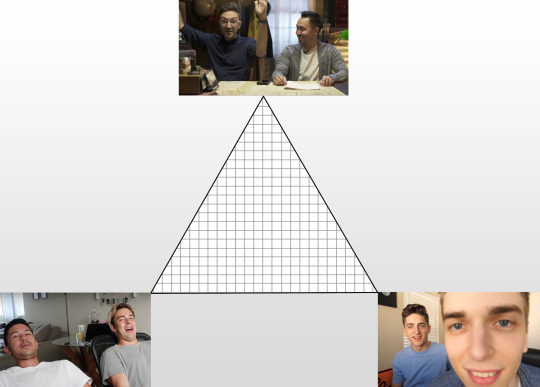
Reblog with your alignment on the Male Duos of Youtube Chart
4K notes
·
View notes
Text
there is a tendency with history, i think, because we're so far removed from it, to kind of forget that all of the people were people
a child 10,000 years ago left a handprint on a wall. they were fingerpainting. a viking climbs up a rock just to carve the words "this is very high" 10ft off the ground. somebody centuries... milennia... ago burned their dinner so thoroughly that they buried the ruined pot in the backyard rather than attempt to clean it. shakespeare got drunk and wrote dick jokes. tutankhamun was a little boy who liked ducks more than anything. a roman carves his name into a monument in another country saying "i was here". a prisoner, centuries ago, in the tower of london scratches lines into the wall as a tally marking the days. a medieval monk scrawls in the margins bemoaning the boredom of his work.
every human being across history has said "i was here. i lived. i loved. i made something. i laughed. i cried. please do not forget me"
108K notes
·
View notes
Note
How do you feel about Americans?
Americans have one of the highest obesity rates in the world, yet they hold the most Olympic medals. They have a horrible education system, yet eclipse the rest of the world in scientific research. The country is filled with clueless philistines, yet their culture permeates every society, in some way, across the planet. The country is still less than three centuries old, but has spent most of it at war. They are universally hated or feared by nearly every other country on the planet, yet the first to offer help during a disaster. Their people are stubborn and never content with the way things are, and for better or worse, all of them imagine how things could be better. Every American is a bankrupt billionaire, a prince in exile, a grounded astronaut, a disgraced scientist. There are the people who do not settle for who they are, but for what they may become.
The country has her problems. Certainly their government has a lot of blood on its hands. But there is something charming about the people I can’t quite place. Even the delusional leftists or the out of touch neocons. There is a certain magic about the place that you don’t find elsewhere. There are bad parts and bad people, to be sure, but there are just as many good parts and good people. It is a land of extremes. But even the poor aren’t really that poor. Much better to be a homeless American living on the beach than literally freezing to death at a metro station in Moscow.
Sure, Yanks say some stupid things. Sometimes they do stupid things like arm terrorist groups they later go to war with. But sometimes they also say profound things. Sometimes they do profound things like planting their flag, in person, on the moon. I can’t stay mad at them and I can’t help but love them.
7K notes
·
View notes
Text
So I feel the need to explain my thoughts on why it would, not only be really sad, but also a bad narrative decision, to kill off either Nico in Will. I am aware that the Read Riordan article was not written by Rick, but there's still a high likelihood that Rick will kill one or both of them off if he ever does a solangelo book.
Let's start off with if Will was the one to die. Will dying would completely destroy Nico, especially since he already lost Jason. Losing another person is something I don't believe Nico could take. The likely thing is that he would fall back into despair and grief he doesn't know how to manage again. It would make his character arc over 9 books irrelevant.
And especially seeing that Will is part of the reason the people at camp half-blood don't hate him anymore, because Will's popular. With him gone I don't doubt people would start whispering about Nico again. Definitely so if his powers start going out of whack with his emotions.
And yes, Nico still has his sister, and Reyna, but they're at camp Jupiter. He also has the 7, but they never really liked him all that much besides Percy, Annabeth, (who are at cj) and of course Jason.
So killing Will right after killing Jason, would practically put him right back where he started in the beginning of Heroes Of Olympus.
It's pointless.
And if Rick killed off Nico, it would also be pointless. Think about it. Years and years of misery and loneliness and loss and mourning and pain, with a taste of a happy life, with Nico learning to be happy again. Just to kill him off? To make his suffering worth nothing in the end?
Killing characters shouldn't just happen for the sake of it, it should serve a narrative purpose. It should do more than just make the audience sad.
And killing either of them falls so heavily into the 'burry your gays' troupe it would be laughable if it wasn't so disheartening. Killing off the most prevalent and first same-sex couple that are criminally underdeveloped and haven't even had an on page kiss?
If that's not burying you gays than I didn't spend hours reading about this damned cliche online.
So what's left to do? They both survive? That seems like the obvious answer but if they're going to tartarus like Tower of Nero hinted at then that doesn't work either. Since that would be 5 times people have survived tartarus, both of them surviving would make tartarus seem weak. Tartarus should never seem weak.
And don't forget that when Percy and Annabeth escaped, a titan and a giant had to sacrifice themselves for that to happen. And Nico didn't really escape he just got kidnapped and taken out of there by the giants.
But Nico going back to tartarus and re-traumatizing himself in the first place is redundant, weakens the storyline and only serves to give his HoO story arc less power.
Rick kind of backed himself into a corner here. He didn't think things through fully and it fucked him over.
So, conclusion, we better hope we're wrong about what the solangelo spin off could be about.
31 notes
·
View notes

